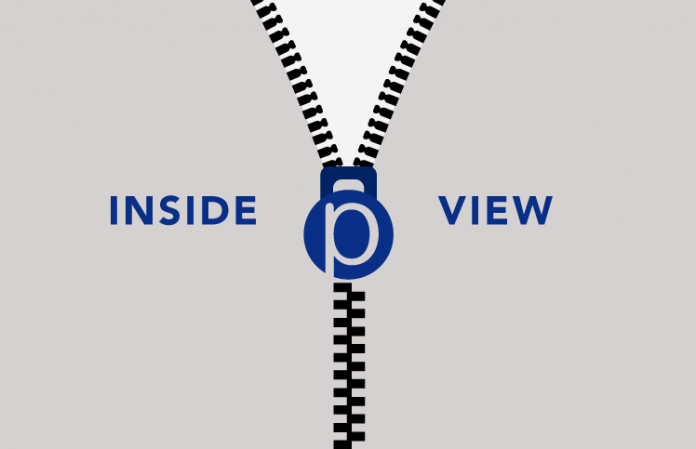
Guests of high-end hotels have come to expect over-the-top service from concierge staff. These well-trained individuals tap into their extensive knowledge of local services and providers to ensure that guests feel welcome and comfortable, and that their stay is memorable.
Imagine if you could get that same level of personalized attention in other areas of your life. In fact, that is the experience that the UPMC Health Plan Concierge Contact Center delivers to more than 1 million members navigating the complex world of health insurance.
The contact center’s mission to provide concierge-level service is part of a journey that began more than a decade ago, says Mary Beth Jenkins, Senior Vice President and Chief Operating Officer, UPMC Health Plan and UPMC WorkPartners. “We work hard every day to provide a different level of service to our members,” she says. “We have a culture of service excellence in which our goal is to exceed expectations on every call.”
It’s not merely an internal objective for staff—exceptional service is what differentiates the health insurer for its members. The organization’s success with its unique approach to the service experience has not gone unnoticed in the industry either. UPMC Health Plan has been recognized with industry awards year after year. In 2015 alone, the contact center was named a Gold Stevie Winner in the Contact Center of the Year category; was awarded the Global Call Center of the Year by ICMI; and, most recently, received a Call Center Week Excellence Award from IQPC for Best Large Contact Center of the Year. Jenkins also received a Call Center Week Excellence Award for Best Contact Center Leader of the Year.
Providing High-Touch, Proactive Support
What does concierge-level service consist of in a contact center environment? UPMC Health Plan concierges are trained and empowered to go beyond simply answering questions and meeting routine expectations.
“Our approach is to anticipate our members’ future questions and issues,” Jenkins explains. “We strive to be proactive and make outreach calls to our members to welcome them to our plan, educate them, remind them about appointments and preventive care needs, and to go above and beyond to help that member live a healthier life.”
Agent performance is not measured by how quickly they can get the member off the phone. Rather, concierges are trained and recognized for surpassing basic expectations to anticipate future questions and guide members through the changing healthcare landscape. Jenkins recalls a recent example in which a contact center concierge had called a member to remind her that she was due for a mammography. The member confided to the representative that she hadn’t been able to make an appointment because she was unable to find daycare for her children. The concierge quickly located a facility that had onsite daycare, scheduled an appointment for the member and her children, and called the member the day before the appointment to remind her.
The concierge’s determination to find a solution for the member is an example of the type of exceptional service that is delivered on a daily basis in the contact center. For this member, it turned out to be a life-saving service. The member later called back to thank the concierge and to tell her that the mammogram had revealed a lump. She admitted that she would not have had the screening if the concierge hadn’t made it possible through her proactive assistance. “That, to me, is why we do what we do,” Jenkins says.
Focusing on Quality Has Better ROI
At first glance, encouraging reps to spend more time on the phone and make outbound calls to members might sound like an expensive service model. Yet, as Jenkins points out, “We have found that, if you invest in the quality of the interaction, the number of individual calls will decrease. We have been able to demonstrate that our inbound calls at the member per thousand level has actually dropped. If you allow your service staff to have a higher quality conversation, they can be more thorough and cover the information in one call versus two additional calls.”
Service quality is measured by average speed of answer, first-call resolution and member satisfaction. Additional member feedback is collected via an after-call survey. Any survey responses which indicate that a member was not satisfied with the service they received or the response they were provided are automatically flagged and an alert is dispatched to the entire leadership team. “We are then able to provide immediate service recovery with an outbound call to the member,” Jenkins says. The management team regularly analyzes the survey data to identify process improvement opportunities and root causes, and then puts in place action plans to resolve issues.
While its voice of the customer process is a critical element of continuous improvement initiatives and member retention, UPMC Health Plan leaders place equal emphasis on listening to the voice of the employees. “Hands down, we attribute happy customers to happy, engaged employees,” says Jenkins.
A companywide employee engagement survey provides one method for collecting employee feedback. Participation is high; more than 93% of the contact center staff took part in the most recent survey earlier this year. The leadership team then reviews the survey feedback for opportunity areas. “We take them very seriously,” Jenkins stresses. As with customer feedback, the priority is on taking action. The management team breaks down improvement areas into projects and tasks with timelines to keep them moving forward, and importantly, communicates progress updates to the employees.
Read the full story here.




